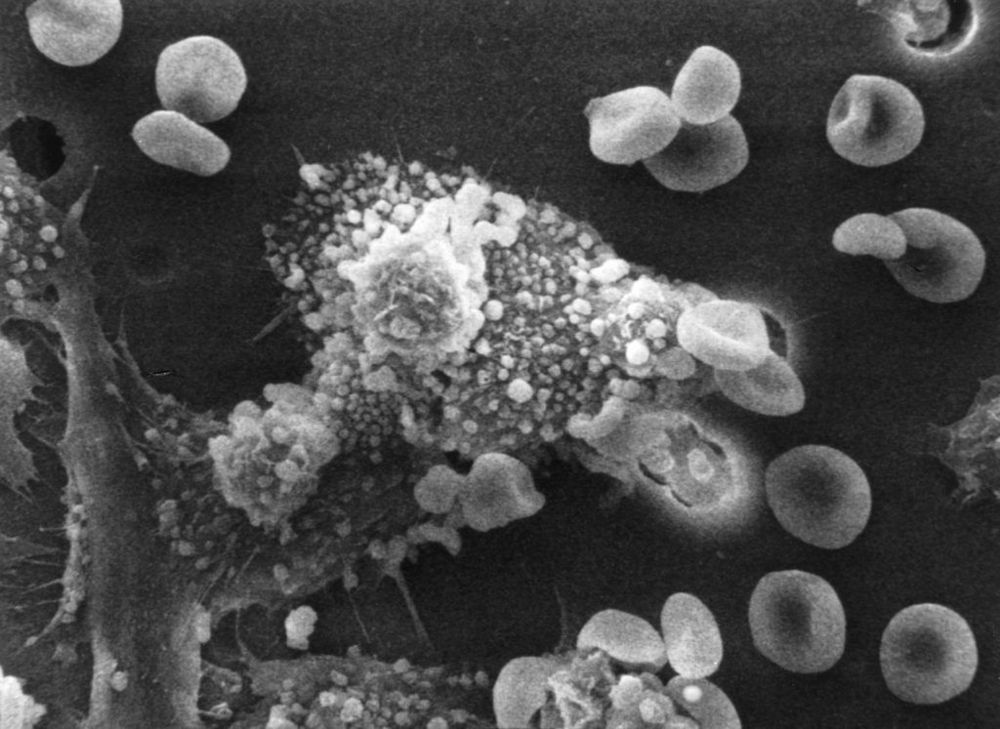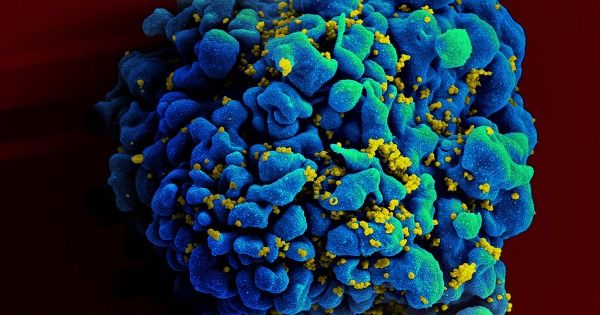An antibody against the “don’t eat me” signal on cancer cells appears safe and well-tolerated by patients with advanced cancers. A phase 2 trial is planned.
Author Krista Conger Published on March 5, 2019 March 5, 2019.


Fluorocarbon based life? Could be possible. Wonder where this will go.
Chemists have now reported a facile method for the replacement of hydrogen with fluorine in important drug molecules. This new discovery enables the fine-tuning of existing (and potential new) pharmaceuticals to endow them with improved pharmacological properties.


A recently discovered Weyl semimetal delivers the largest intrinsic conversion of light to electricity of any material, an international team lead by a group of Boston College researchers reports today in the journal Nature Materials.
The discovery is based on a unique aspect of the material where electrons can be separated by their chirality, or handedness—similar to DNA. The findings may offer a new route to efficient generation of electricity from light, as well as for thermal or chemical sensing.
“We discovered that the Weyl semimetal Tantalum Arsenide, has a colossal bulk photovoltaic effect—an intrinsic, or non-linear, generation of current from light more than ten times larger than ever previously achieved,” said Boston College Associate Professor of Physics Kenneth Burch, a lead author of the article, titled “Colossal mid-infrared bulk photovoltaic effect in a type-I Weyl semimetal.”


The announcement that a London man has become the second in the world to be “functionally cured” of HIV is a major advance in stem cell transplant therapy.
The man — who wishes to remain anonymous — was given stem cells from a donor with genetic resistance to the disease and he has now been in long term remission for 18 months without medication.
The breakthrough comes ten years after the first such case of a patient with HIV going into sustained remission, known as the ‘Berlin Patient.’

The role of epigenetics, which determine how your genes are expressed, is being increasingly implicated in aging, as is the potential of therapies that revert epigenetics back to those of a younger person.
What are epigenetic alterations?
The DNA in each of our cells is identical, with only some small variations, so why do our various organs and tissues look so different, and how do cells know what to become?

A study published today in the journal Nature Medicine led by researchers at Huntsman Cancer Institute (HCI) at the University of Utah (U of U) describes a new therapeutic approach with potential for patients with pancreatic cancer. These researchers discovered a combination drug therapy that may effectively combat the disease. HCI researchers first observed anti-cancer impacts in a laboratory setting and, subsequently, in its first use in a human patient.
The study has already progressed to a clinical trial that is now open at HCI and will soon be open at other sites in the United States. Details about the clinical trial, called THREAD, are available under National Clinical Trial Number 03825289. The combination therapy uses two drugs already approved for use by the Food and Drug Administration for other diseases, including cancer. The new drug combination is administered through pills taken orally.
Pancreatic tumors are characterized by mutations in a gene called KRAS. When KRAS is mutated in this way, it sends constant signals that promote abnormal cell division and growth in cancer cells. As a result, tumors grow out of control. At the same time, like all cells, pancreatic cancer cells must recycle their components to provide building blocks for new growth in an essential cell function known as autophagy. Previous studies to combat pancreatic cancer that were focused either on the role of KRAS or on impacting autophagy were not effective.